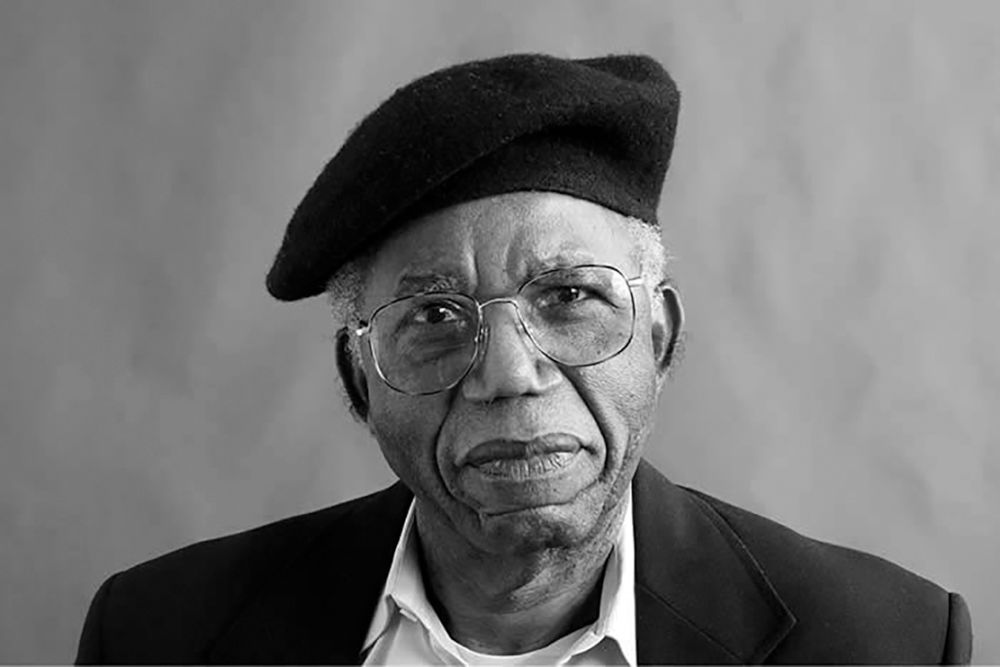Author Spotlight: Chinua Achebe

Chinua Achebe is a Nigerian writer born in 1930. He learned English relatively late in childhood, which allowed him to nurture a sense of appreciation and pride for his native tongue. His home life further fostered this: He read English books owned by his father and listened to Igbo stories told by his mother and his sister.
Achebe excelled in academics and was selected to attend one of the best university prep schools in West Africa. At 18, he entered the now University of Ibadan as a medicine student. While in university, he shifted to the liberal arts, studying history, religion, and English. The University Herald contained Achebe’s first published stories, some of which had been reprinted in the Girls at War collection.
In 1953, Achebe finished his degree and joined the Nigerian Broadcasting Corporation. Three years later, he attended the British Broadcasting Corporation (BBC) Staff School. During his time in London, he forwarded the manuscript of his first novel, Things Fall Apart, with the support of a mentor from the BBC. The novel was published in 1958 by Heinemann.
When Achebe returned to Nigeria, his station rose rapidly in the Nigerian Broadcasting Corporation. He founded the Voice of Nigeria in 1961, which aimed to create radio programs highlighting Nigerian culture.
Achebe published four more novels with Heinemann, as well as several children’s books, all with themes involving problems of society. Achebe also became the founding editor of Heinemann’s African Writers Series and an editor of Okike, Nigeria’s journal on new writing. His personal belief is that any artistic or literary work should serve a purpose. His works reflect this, with most of his books critiquing corrupt politicians, talking about the lack of leadership, and highlighting issues of other newly independent African nations.
Achebe’s first two novels, Things Fall Apart and No Longer at Ease, both talk about the colonization of Nigeria and was intended to be one long novel. The first book takes place in the 19th century, while the latter takes place during the decade of Nigeria’s independence and features protagonists two generations apart. The first book deals with Nigerian civilization before colonization, while the second deals with the effect of colonization on Nigerian society. His third novel, Arrow of God, was inspired by the story of an Igbo priest who rejected an alliance with the British. His fourth novel, A Man of the People, is a satire that deals with corruption in Nigeria after its independence.
When war broke out in Nigeria, Achebe fled to Europe and eventually moved to the United States. He also moved to writing poetry and short stories. He published essay collections, most of which were focused on the role of the African writer in society.
Aside from his literary work, Achebe also had an academic career. He founded and published Uwa Ndi Igbo: A Bilingual Journal of Igbo Life and Arts. He taught for three years at the University of Massachusetts at Amherst and one year at the University of Connecticut as a visiting professor. He returned to Nigeria, where he became a professor of English at the University of Nigeria. In 1990, he taught as a professor of literature at Bard College in New York.
Throughout his life, he received several academic and cultural awards, including the Margaret Wong Memorial Prize and the Man Booker International Prize. He passed away in 2013 at the age of 82.
Achebe’s lifelong dedication to writing about his heritage, upholding African voices, and championing Nigerian culture gave him the rightfully deserved moniker of the Father of African Literature.
Sources:
For affordable and professional proofreading, copy editing, and writing services, trust only inwrite.com!